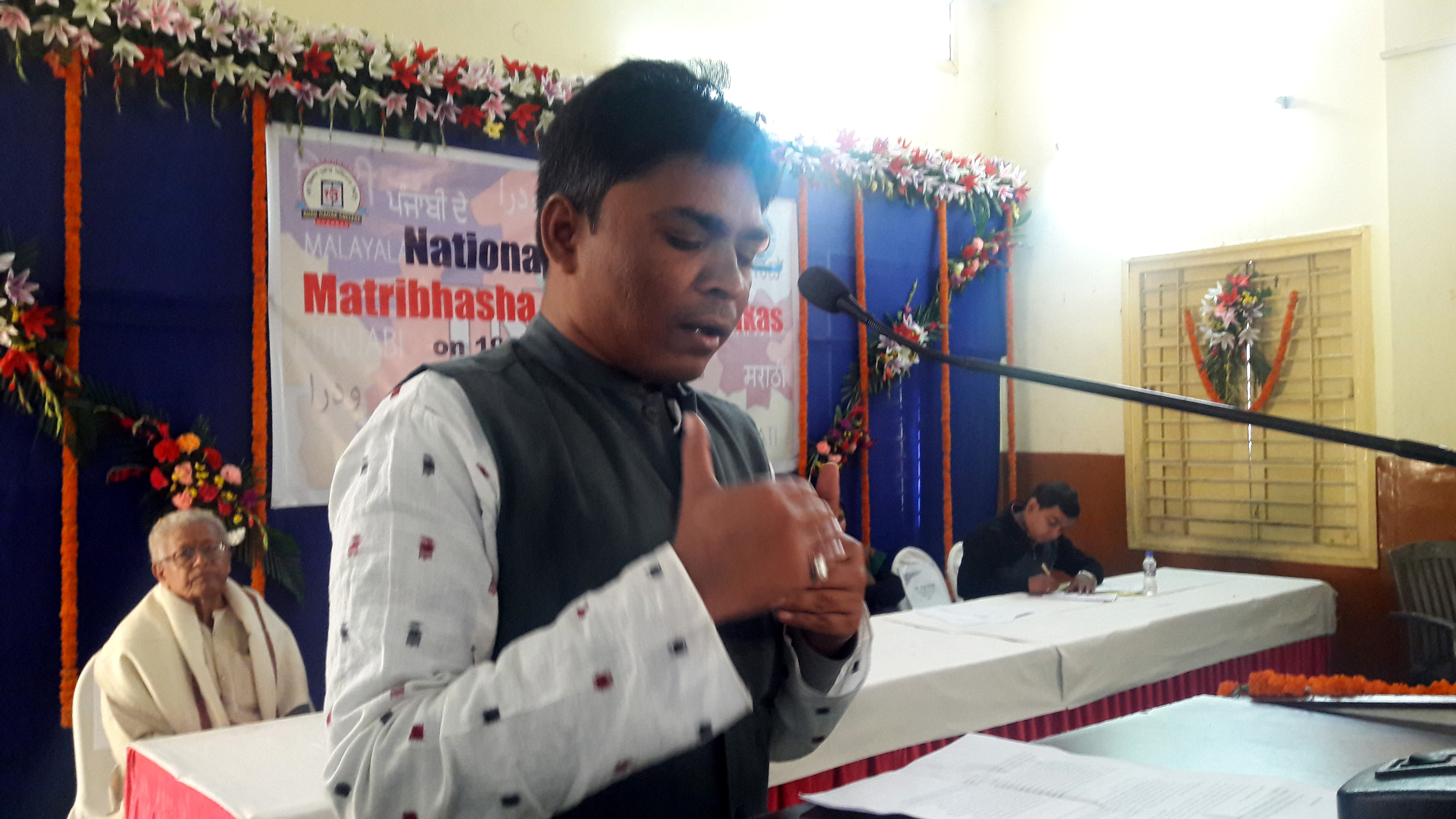Kosali language as one of the official languages of Odisha will facilitate ease of governance in western Odisha says, Saket Sreebhushan Sahu, coordinator, K K C. He added, In the recent year the Government of Odisha has recommended the language for the inclusion in the 8th Schedule of the constitution of India. It shows prudence on the part of the state government in being flexible in recognizing the complexity of linguistic diversity of Odisha.
Currently, notices are given in the villages of western Odisha in Odia; not very literates understand the full implications of these notices. Civil servants from other areas who do not even have rudimentary knowledge of Kosali language cannot communicate with citizens, thus resulting in miscommunication. In fact, Odisha is among the minority of states which claims to have only one language. Out of 29 states, 15 have more than one official language. Out of 7 union territories, 6 have more than one recognized language. In a democracy, freedom of expression is a fundamental right of the citizen. Good governance requires efficient communication between the citizens and the government. In this context, considering Kosali language as the state language of Odisha will facilitate governance in western Odisha.
The language activist states, It is the mother tongue of ten districts of western Odisha and a large population of Chattisgarh state. More than two crore (2,00,00,000) population uses the language in their day-to-day life.
Kosali language has a rich literature in different areas viz. Architecture, Astrology, Mantra-Tantra-Yantra science, Medicine, Yoga, Music, Arts, Dance, Drama, Yoga, Philosophy, and Grammar.
Kosali dramas, songs, and dances are popular across the world. In addition, the Kosali language cinema is attracting worldwide attention. The All India Radio (viz. Sambalpur, Balangir, and Bhawanipatna) and television channels are broadcasting their news and entertainment programmees in Kosali language. More than five registered newspapers and seventy magazines are available in the Kosali language. Registrar of Newspapers for India has also enlisted Kosali languages in its language list since 2012.
He added, UNESCO has recognized that the concept of language equality among all languages is important irrespective of whether the languages have a script or not. Furthermore, the Indian government is promoting the mother tongue based multilingual education to reduce the school drop-out rates and to enhance communication using a mother tongue. In this regard, western Odisha area contains 40 to 50 % of the state’s population. The key to development of western Odisha is the Kosali language. Dropout rate in schools particularly in rural and Adivashi area can be ascribed to, among other variables, teaching in Odia language which not used in day-to-day communication. It is as if learning through an alien language. Kosali is the dominant means of communication throughout western Odisha. Though we have several tribal languages, all tribals have functional capability in Kosali not Odia. That is the main reason why KBK has been found literacy rate is so low. We also have large population of scheduled caste in the areas that are similarly impacted. It has caused various problems viz. i) the overall marks of students from western Odisha are lower than the students of coastal Odisha and ii) many bright students of western Odisha fail again and again in both 10th and 10+2 examinations because of their poor knowledge in Odia language. Recognition of Kosali language will facilitate education among the kids of western Odisha in their mother tongue and solve the above mentioned problems.
In spite of aggressive Odianisation, population of western Odisha has retained Kosali language for day-to-day communication. Kosali language is intimately connected to the distinct culture and heritage of western Odisha, quite distinct from Odia culture. The unique folk songs and dances blends neatly with rhythm and punctuation of Kosali language.



